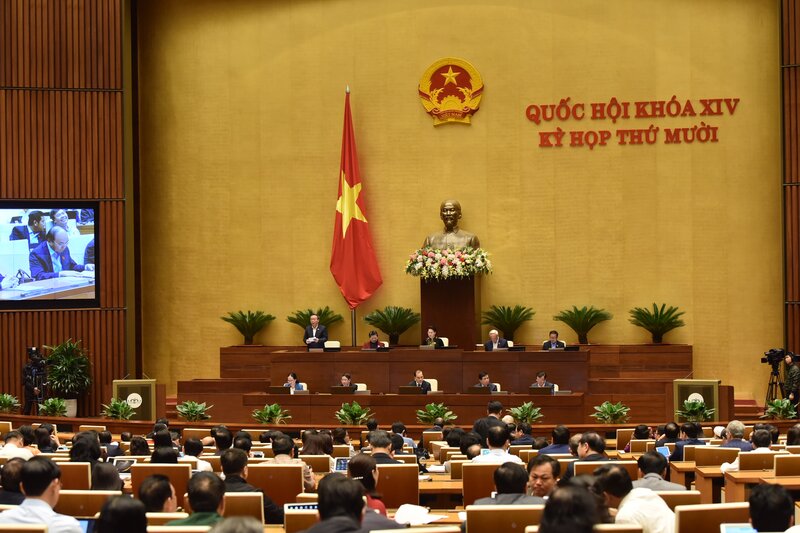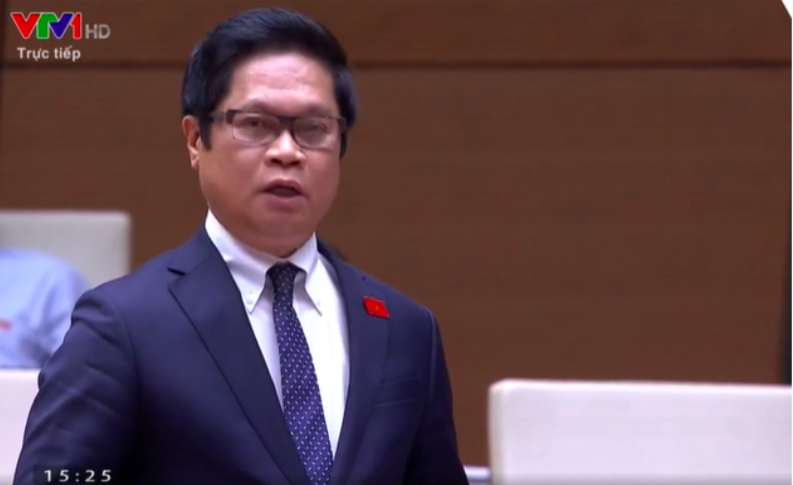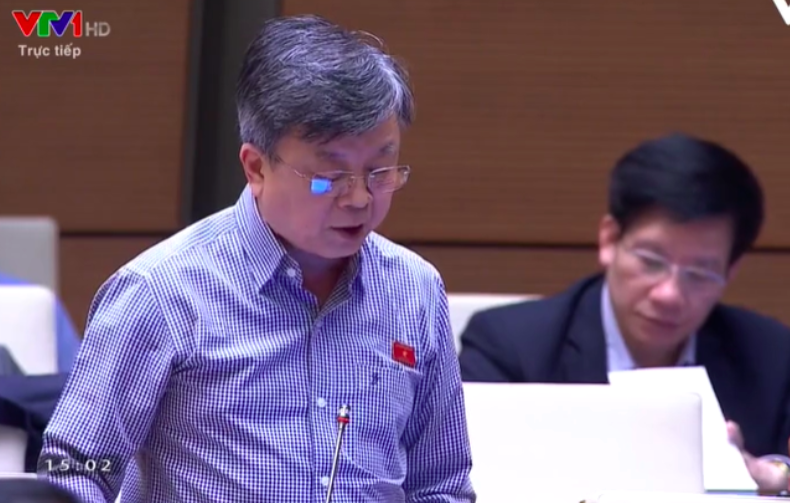Vietnam is receiving a new wave of investment capital, especially in the supporting industries, and a sound legal framework is required to help the country better absorb this capital inflow, according to Chairman of the Vietnam Chamber of Commerce and Industry (VCCI) Vu Tien Loc.
 |
|
Overview of the National Assembly discussion.
|
If Vietnam could not grasp this opportunity, even hundreds of billions of dollars in foreign investment capital could not help the country transform itself from an assembly hub and escape the middle-income trap, Mr. Loc said at a discussion session at the National Assembly on November 3.
According to Mr. Loc, Vietnam has now become a top investment destination for foreign companies that are looking to form a sustainable supply chain for the future, referring to the news that out of 30 Japanese companies that were shifting their production facilities to a new country, half of them chose Vietnam.
Given current global uncertainties, Mr. Loc suggested the government focus on stabilizing macro-economic conditions, which remains as a solid foundation for upcoming development plans.
 |
|
VCCI Chairman Vu Tien Loc at the discussion.
|
National Assembly Deputy Truong Trong Nghia from Ho Chi Minh City said Vietnam targets to become an upper middle-income country by 2025 and a developed country by 2045, so the next five years are decisive to these development objectives.
Mr. Nghia said there should be feasible action plans to realize these targets in a new normalcy, especially as the Covid-19 pandemic, climate change and non-traditional security issues are becoming more complicated.
The pandemic could blow away ambitious plans of developed countries, but can help a developing country move forward with an effective strategy, he noted, adding Vietnam must continue to pursue a sustainable and rapid economic growth.
 |
|
National Assembly deputy Truong Trong Nghia.
|
NA deputy Phan Huynh Son from An Giang province noted Vietnam’s economic growth is on track to rank the second highest in Asian and the fifth globally.
Mr. Son said the country’s effective measures against the pandemic are key to boosting economic recovery and helping the business community overcome the current crisis.
He noted while Vietnam’s e-government index climbed 13 places against 2014, it still remains 6th in Southeast Asia, which requires greater efforts to promote e-government, including the finalization of a legal framework for e-government.
Mr. Son also said the government should focus on the issues of public debt, infrastructure development and natural disaster mitigation.
Avoiding Covid-19 resurgence at all costs
NA deputy Cao Dinh Thuong from Phu Tho province warned a resurgence of the Covid-19 pandemic would wash away all efforts in socio-economic development this year, and could even impact the strategic development plan for the 2021 – 2025 period.
Mr. Thuong requested the government to take more drastic measures against the pandemic, and prepare three development scenarios in the post-pandemic period for corresponding appropriate actions.
Sharing the same view with Mr. Thuong, deputy Mai Thi Anh from An Giang province said there should be a comprehensive evaluation of the efficiency of supporting programs for enterprises and people affected by the pandemic, especially as a VCCI survey conducted in September revealed only 3% of small and medium enterprises had received government support.
In the long term, it is essential for Vietnam to avoid the disruption of supply chains, push for administrative reform and create a platform for further development of enterprises, Ms. Anh said.
Meanwhile, state-owned enterprises should be allowed to have more authority in their decision-making process so that they could truly become “iron fists” of the economy and play a more active role in economic development, added Ms. Anh.
 |
|
NA Deputy Nguyen Van Chien.
|
NA deputy Nguyen Van Chien from Hanoi said for this year, Vietnam’s economic growth target of 2 – 3% remains a spotlight of the region, along with a record trade surplus of over US$18 billion in the first 10 months this year and growing foreign direct investment.
For next year, Mr. Chien said the GDP growth target of 6 – 6.5% is feasible, but would require an effective combination of both monetary and fiscal policies. Hanoitimes
Hai Yen